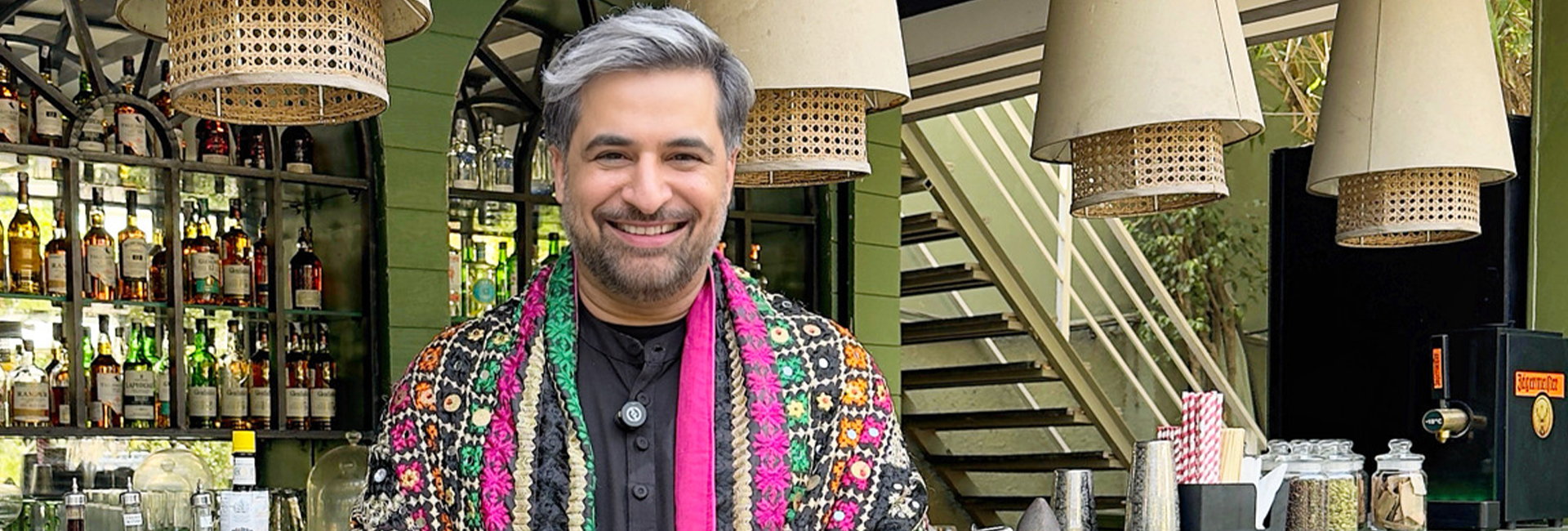(July 7, 2024) There is little Chef Suvir Saran cannot do in the world of cuisines and culinary skills. From launching award-winning restaurants to writing best-selling cookbooks, he talks about his incredible journey
If ever a biopic was to be made about a chef from India, my pick would be Suvir Saran. He is a man of several talents. A Michelin-star chef who is on the board of nutrition for Brigham and Women’s Hospital, which is associated with Harvard Medical School, he can write, paint, sing [Indian classical], sew, crochet, do macrame, etc. And oh, he cooks food that people – read the who’s who from across the globe – cannot get enough of.
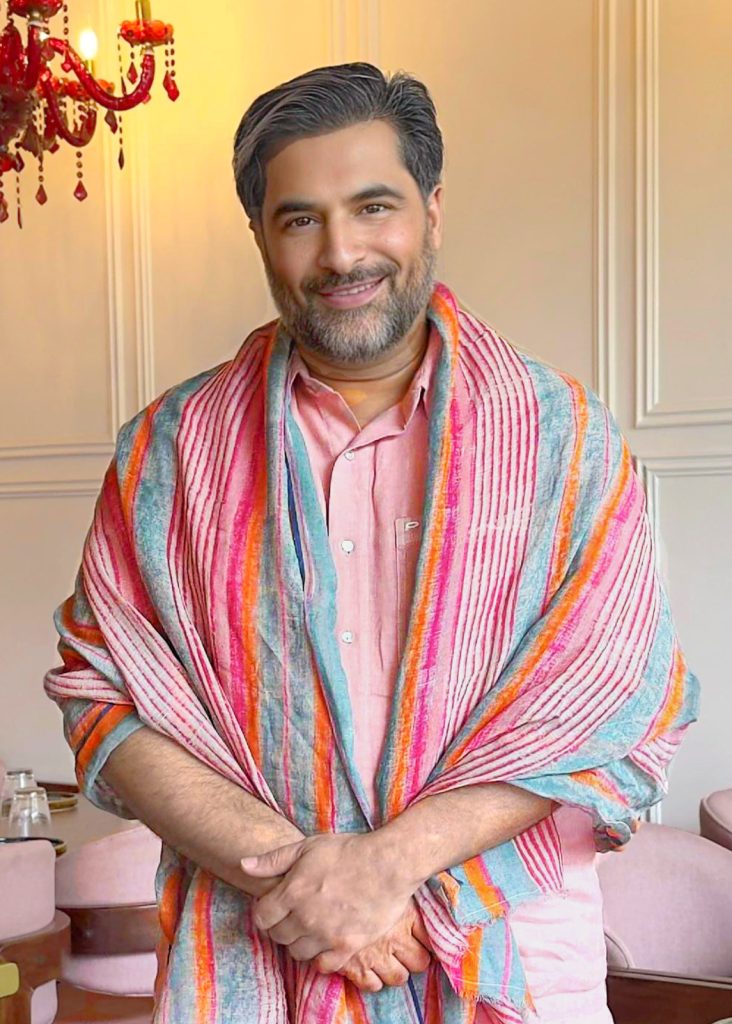
Chef Suvir Saran
He lived in the US for several years, owned a farm that housed endangered species, launched and managed successful restaurants, taught people to cook, and consulted with conglomerates. But, a series of falls left him legally blind after a mild stroke.
He recovered and is today a popular speaker, a culinary director with the Bastian Hospitality Group, owned by Shilpa Shetty, Raj Kundra and Ranjit Bindra. Under his leadership, they have launched several successful brands with more on the anvil.
He has launched Qora in Koregaon Park and Murphies on Prabhat Road in Pune with his protégé Vardaan Marwaah and the promoter Aman Talreja.
There is Lord Elgin, a restaurant in Amritsar that serves tapas from all over the world and Farro is his latest, soon-to-be-launched fine dining venue with food that will be a modern interpretation of traditional dishes. It will most importantly be mindful and sustainable, including grains, greens, vegetables and meat. Suvir firmly believes that Indian ghar ka khaana is one of the healthiest and most balanced meal options available.
Learning from the Best
Recalling his childhood days, growing up in Nagpur and later Delhi, Suvir’s earliest influences that nurtured his talent were his mother, the Panditji who cooked in their home, and all the neighbourhood housewives, house-husbands, cooks, and his extended joint family. He says, “Panditji was a Brahmin chef and people were not allowed inside the kitchen wearing a belt or without a bath. He gave me carte blanche and taught me everything. My mother who cooked with mindfulness and passion was also a great influence. She was the smartest baker I knew and could effortlessly manage cooking for a large group. She planned everything military style and answered all my questions on love, empathy, and more. Because I was different, she calmed me down.”
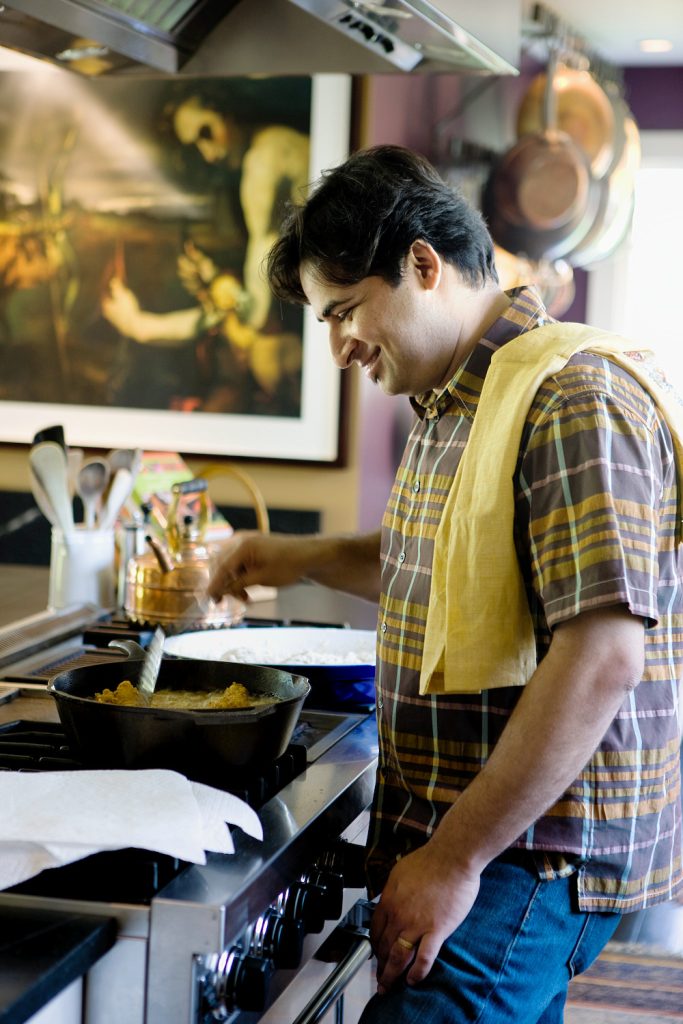
Every time Suvir would visit people’s homes as a child, he revealed that he would go to the kitchen, help the cooks or hosts and learn in the process. He audaciously even taught a new bride that had married into his family, how to make a round roti!
Suvir studied fine arts at the JJ School of Arts and later, graphic design at the School of Visual Arts in New York. Though he wanted to be a teacher, an artist, or a veterinarian, his passion for cooking persisted. He says, “In Mumbai, and later in New York too, I used to cook for friends; and there was no school teaching what I was cooking. I happened to meet the publisher of Food Arts magazine who asked me to write for them. He listed my name on the masthead as Culinary Authority. One thing led to another and in 2003, I launched my first restaurant in New York, Amma. It was a 30-seater, and people would stand in queues to get in. No one was doing pan-Indian food at that time. We would serve lamb chops with a dosa filling and a Himachali pear chutney. We were selling a story, not just food.”
American Base, Cooking Desi
Earlier, Suvir used to cook meats without tasting them as he grew up vegetarian. An aunt who was married into a non-vegetarian family taught him how to cook and gauge whether it was done without tasting the dish. “I started eating meat at 35, because I was writing food reviews for Food and Wine magazine, Gourmet, Bon Appetit and Food Arts; and I couldn’t play a guessing game about the taste. It had to be authentic,” he tells Global Indian.
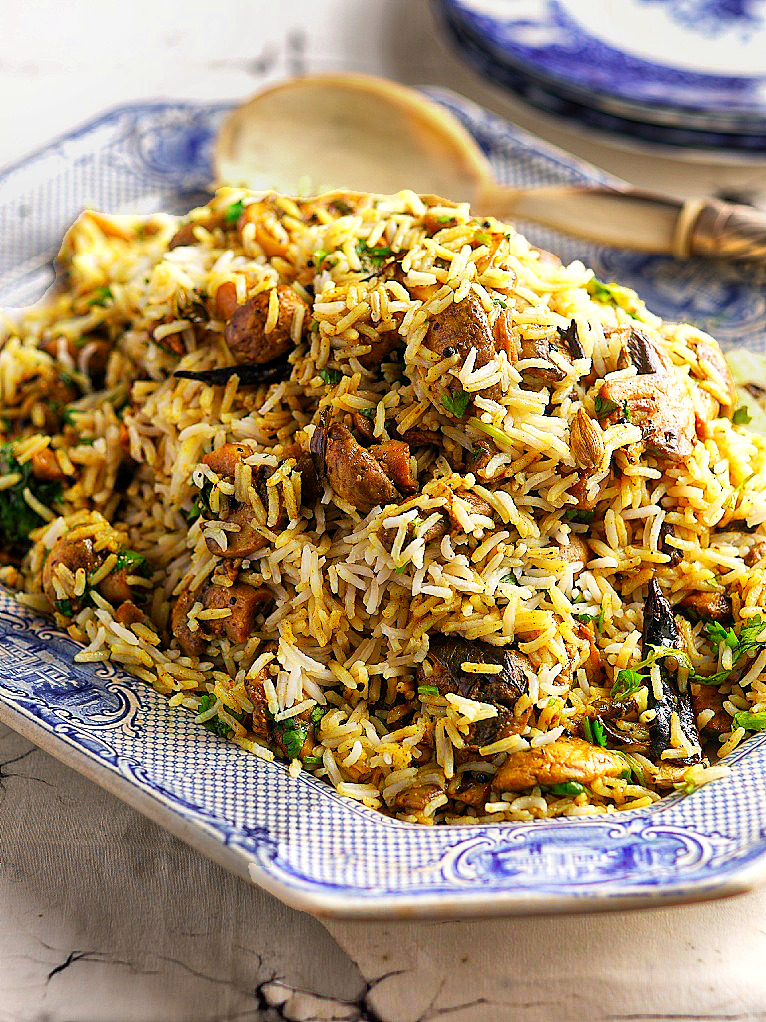
Malabar Mushroom Biryani
After leaving Amma, Suvir launched Devi, a more refined, daring, and progressive restaurant. “This was in 2007, the same year that the Michelin guide launched in the US. They awarded the Michelin star to 18 restaurants in North America that year, Devi was one of them.” At Devi, Suvir has cooked for international celebrities, royals, stars from Hollywood and Bollywood, entrepreneurs and billionaires, artists and rock stars – and just about everyone who loves good food. “I served Bhel Puri here; 20 years ago I had dared to bring street food onto a fine dining table.”
He then moved on to other projects and along with his partner, owned a farm called Masala Farm, where the eggs from their chicken were in great demand as they were high in protein and fat content. “We also had several endangered species that were almost extinct living at the farm. For me, it was a place to live, not a money-making venture. Everything else I did, paid for the farm’s expenses.”
Food writing
While in the US, with his reviews and food writing gaining a fan following, a book offer was sure to follow. And it did, with the publishers spending vast sums of money on the production of the book itself. In his words, “The book didn’t do what the Tarla Dalal and Madhur Jaffrey books did. This was Indian home cooking for people who wanted to learn Indian cooking. It was titled Indian Home Cooking and I followed it up with two more – American Masala and Masala Farm. These books were seminal; they had recipes for six to seven varieties of rasam, shorbas, dals, subjis, chicken, pickles, chawal ki kheer, parathas … It was a labour of love. Each recipe was tested four or five times. And I did not compromise on ingredients. If the dish needed coriander leaves, I used coriander leaves, not parsley.”
Masala Farm also made it to the James Beard list of best cookbooks in 2011. It tells food stories of Suvir’s travels around the world and his life coupled with food from India. A novel and a memoir, “It is more aspirational and exciting,” says Suvir.

American Masala, as described on Amazon is ‘about adding new flavours to the great American melting pot, using spices to liven up the old standbys, and enjoying dishes that are as exciting and diverse as life in the big city, and yet as familiar and comforting as your mother’s cooking.’ It features dishes such as Tamarind-Glazed Turkey with Corn Bread–Jalapeño Stuffing, Crab-and-Salmon Cakes with Spicy Cilantro Aïoli, Crispy Okra Salad and Bombay-style Whole Snapper etc.
His latest book, Instamatic, with a foreword by Dr Shashi Tharoor, is a collection of musings, essays and pictures taken by Suvir when he was almost blind, to show him where he was. “I would write the essays on the phone as I couldn’t type.”
India is still Home
Despite all the success and adulation, his career had its share of challenges. Suvir, who is openly gay, has had to face biases because of it. He says, “Was I discriminated against? Yes. Did I lose out on offers because I am gay? For sure. And there were many times I did not get due credit either. But I have never allowed my mind to wander to these negative aspects. I choose to be grateful and celebratory instead of angry. The people who care for me were happy at my success.”
Another setback was a stint of bad health. During his frequent travels around the country, he’d had several falls. He recalls, “In 2016, I’d had a few falls and then I had a mini-stroke. It left me legally blind and after three years of recovery, I came home to India to die. I had no interest in living, had given up eating and I was given the choice of a hospice or my mother’s home. I chose to go to her home and she helped me recover. She encouraged me to go out and travel with friends. Though I couldn’t see, I could smell and feel everything. A cousin’s wife, Smita, would take my hand and lead me to the kitchen, asking me what to cook. I would guide her and we would make three or four dishes. Slowly I recovered, and believed I had a future, and today, I can see well enough to manage my day, but not enough to drive.”
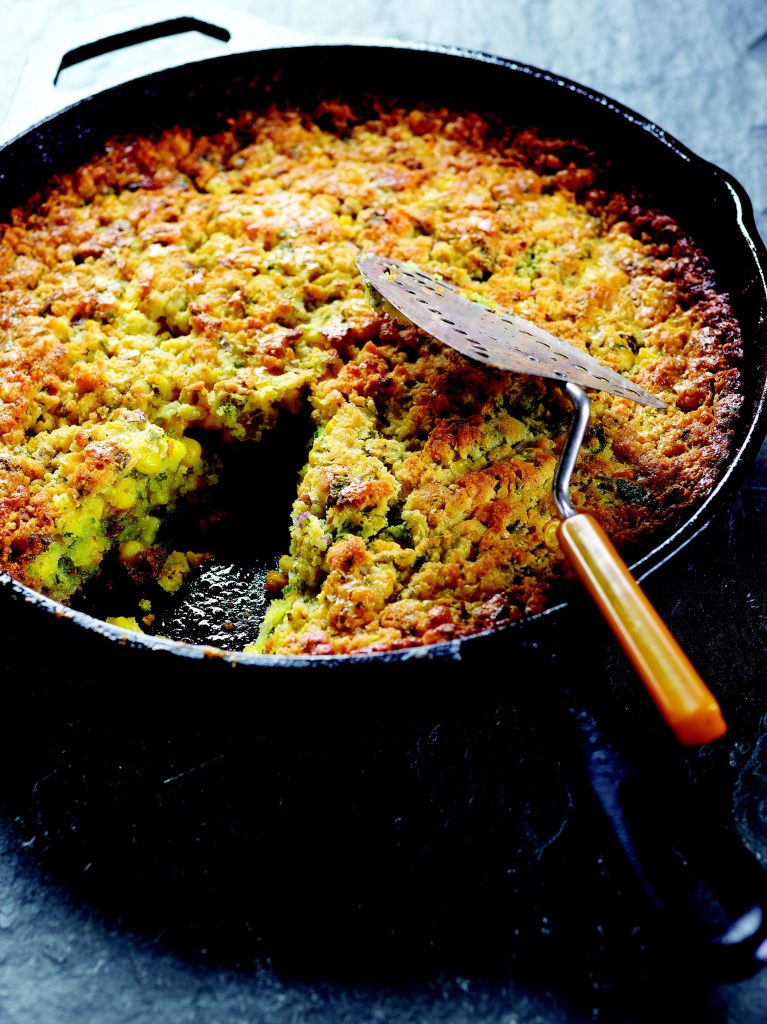
Grandma’s cornbread
His favourite ingredients to cook with include lentils, beans, greens, grains and vegetables. “I like to cook food that gives you the comfort of digestion, and not start tomorrow with heartburn from last night’s meal.” As for global trends in food, he says, “Getting back on track with healthy happy food that is sustainable.”
It would be intriguing to see what this multi-talented chef creates with his next venture. Another milestone for sure.
While travelling, Chef Suvir likes to eat at:
Plats, New Delhi: Grilled Mushrooms
Neuma, Mumbai: Pork Belly
Soam, Mumbai: Bhel Puri
Vidyarthi Bhavan, Bengaluru: Benne Dosa
Pindi, New Delhi: Pindi Chole
- Follow Chef Suvir Saran on Instagram
